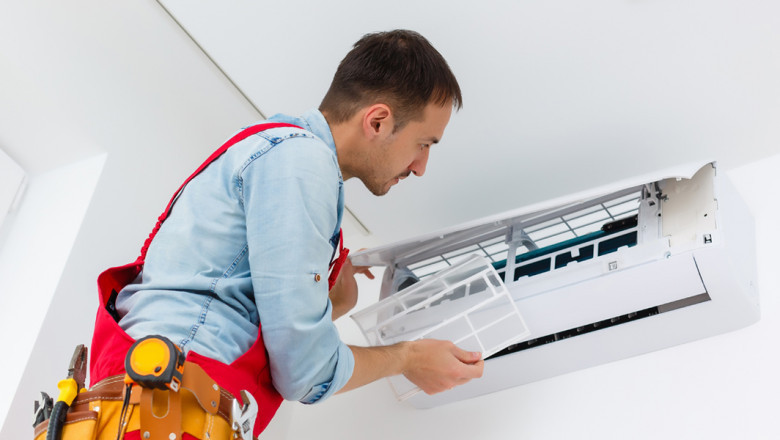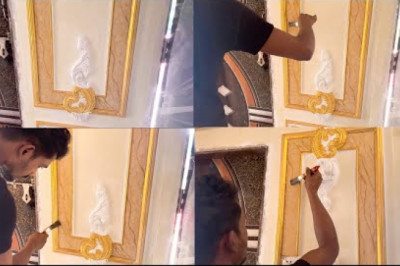views

A new air conditioner is a significant investment, and the last thing any Houston homeowner wants is to replace it prematurely. The average lifespan of an AC unit is about 10-15 years, but with the right care and attention, it's entirely possible to extend its life to 20 years or more. This isn't just about saving money on a new system; it's about avoiding the stress of an emergency breakdown in the middle of a heat wave and ensuring your home remains a comfortable and efficient oasis for decades.
As an HVAC professional, I've seen units that are 25 years old and still running strong, and I've seen systems that have failed after only eight years. The biggest difference between them is not the brand or the initial quality, but how they were maintained. This article will outline the key strategies and best practices that will help you get the most out of your AC unit, ensuring it runs efficiently and reliably for years to come.
1. The Foundation: Proper Installation and Sizing
The longevity of your AC unit begins with a professional installation and a proper load calculation (Manual J). An oversized system will "short-cycle," turning on and off too frequently, which puts extra stress on the compressor and other components, leading to premature wear and tear. An undersized system, on the other hand, will run constantly, struggling to keep up with the cooling demand, which also shortens its lifespan. A qualified technician will perform a detailed assessment of your home's unique characteristics including square footage, insulation, and window types to ensure your new system is the perfect fit.
Why a Correct Installation Matters:
-
Optimal Performance: A properly sized system will run for longer, more consistent cycles, which is the most efficient way to cool a home.
-
Reduced Wear: The right system won't overwork itself, which means less strain on its vital components.
-
Better Comfort: Proper sizing ensures your AC can effectively cool your home and, just as importantly, remove humidity.
2. The Golden Rule: Consistent Professional Maintenance
The single most important factor in making your AC last is consistent, professional maintenance, ideally twice a year. A preventative tune-up in the spring and fall allows a technician to catch small problems before they become major, costly breakdowns. During a tune-up, a professional will clean the coils, check the refrigerant levels, inspect all electrical components, lubricate moving parts, and ensure the system is running at its peak efficiency.
Benefits of Regular Tune-Ups:
-
Early Problem Detection: A technician can spot a failing capacitor, a small refrigerant leak, or a loose electrical connection before it causes a system failure.
-
Improved Efficiency: A clean and well-tuned system uses less energy to cool your home, saving you money on your electricity bills.
-
Extended Lifespan: Regular maintenance is proven to add years to the life of your AC, protecting your initial investment.
3. The Easy DIY: Change Your Air Filter Regularly
Changing your air filter is the most important DIY task you can do to extend the life of your AC, and it should be done every 1-3 months. A dirty, clogged air filter restricts airflow, forcing your system to work harder to pull air through. This extra strain can cause the system to overheat, freeze the indoor coil, or even lead to a complete breakdown. Making a simple, inexpensive filter change a regular habit can save you from a major, costly repair.
Signs of a Clogged Filter:
-
Reduced Airflow: You'll notice a weaker flow of air from your vents.
-
Higher Energy Bills: Your AC is running longer and harder to achieve the same cooling.
-
Visible Dirt: The filter itself will be covered in a thick layer of dust and debris.
4. The Outdoor Unit: Keep It Clean and Clear
Your outdoor AC unit (condenser) needs to be kept clean and clear of all debris to ensure proper airflow and prevent overheating. Trim back any bushes or plants so there is at least two feet of clearance around the unit. Regularly remove leaves, dirt, grass clippings, and other debris that can get trapped in the unit's fins. This simple step ensures your system can efficiently release the heat it's pulled from your home, which is crucial for its performance and longevity.
Outdoor Unit Best Practices:
-
Trim Vegetation: Keep the area around the unit clear of all plants and shrubs.
-
Gentle Cleaning: Use a garden hose to gently spray the coils and remove any dirt. Never use a pressure washer, as it can damage the delicate fins.
-
Avoid Covers: In Houston, it's best not to cover your AC unit with a non-breathable tarp, as this can trap moisture and cause rust.
5. The Inside Job: Seal Ducts and Insulate Your Home
Properly sealing your ductwork and ensuring your home is well-insulated can dramatically reduce the workload on your AC unit, extending its life. Leaky ducts can lose up to 30% of your conditioned air to unconditioned spaces like your attic, forcing your system to run longer to compensate. Similarly, poor insulation allows heat to seep into your home, making your AC work harder than it needs to. Investing in professional duct sealing and home insulation is a proven way to improve your system's efficiency and longevity.
The Impact on Your System:
-
Reduced Run-Time: Your AC won't have to work as hard to maintain the set temperature.
-
Lower Energy Bills: Wasted energy from leaks and poor insulation is eliminated.
-
Improved Comfort: You'll have more consistent temperatures and better indoor air quality.
Final Thoughts
Your air conditioner is a workhorse, and like any machine, it performs best when it's well-cared for. By being proactive and following these five key strategies, you can significantly extend its life, save money on your energy bills, and ensure your home stays cool and comfortable for two decades or more. Don't wait until your AC breaks down to start thinking about its health. For a professional tune-up or a free quote for Houston AC repair company, contact us today











